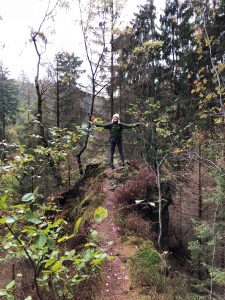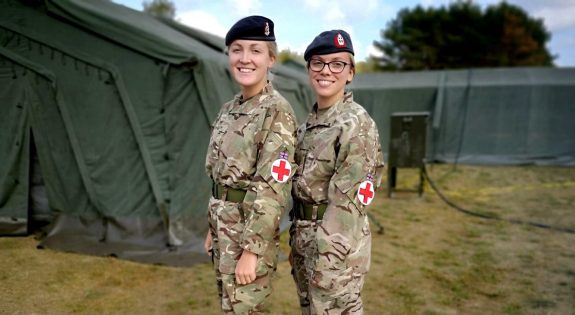News
December 18th 2018
Year in Review: Field Hospital Annual Exercise
Reservists from 212 Field Hospital based in Nottingham, spent five days running a functioning Field Hospital in Germany as part of their annual training exercise in the summer.
The hospital used casualty actors in order to simulate mass casualty situations, provide military specific training for the reserves before ending the task by packing the hospital away as they would at the end of an operation.
Private Chantelle Bartlett who works as a Biomedical Scientist in her civilian career, explained: “The chance to do my NHS role in a tented field hospital setting really put my skills and knowledge to the test.

The Reservists also took part in Adventure Training
“The smaller scale facility allowed me to see a lot more of the hospital that I wouldn’t get to see in my regular role in the NHS and I felt a much stronger connection to the patients.”
Lance Corporal Sallyann Foster who works as a Nurse in her civilian career, added: “The field hospital phase was a fantastic learning experience and has made me more prepared for my deployed role, as well as giving me transferable skills for my NHS role.”
Whilst working in the field hospital the reservists were supervised and instructed by mentors with greater experience in their respective fields.
Chantelle said: “As a Biomedical Scientist within the Army you are expected to be multidisciplinary and we received lots of specific laboratory training from a regular Biomedical Scientist mentor to advance our capabilities.”
After the field hospital exercise was completed the reservists continued their annual exercise in the Harz Mountains with a mixture of adventure training and developing other important skills such as navigation.
The experiences reserves had during this exercise show how annual exercises can help them prepare for an operational role but also demonstrates the benefits these experiences can feed back into their civilian careers.
“The field hospital phase was a fantastic learning experience and has made me more prepared for my deployed role, as well as giving me transferable skills for my NHS role.”

